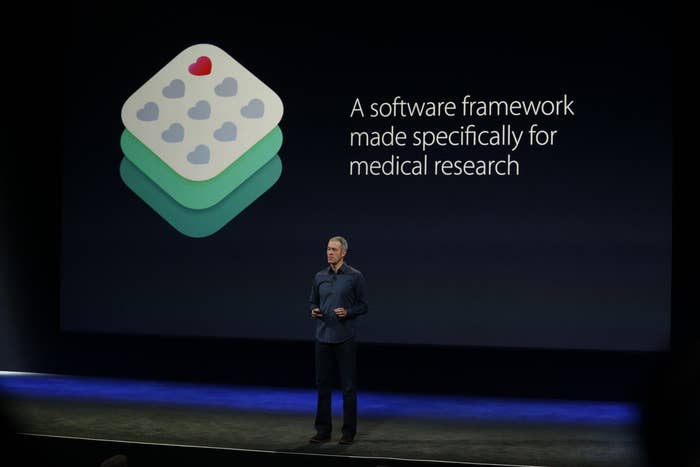
As part of a new initiative to enable medical research through the iPhone, Apple this week strengthened the consumer protection rules on iOS app data collection.
In updates made Thursday to its App Store review guidelines, Apple said that apps using its new ResearchKit framework to conduct "health-related human subject research" must comply with strict guidelines intended to protect users' privacy, safety, and rights. These rules, which prohibit actions like storing health data in iCloud, providing diagnoses without regulatory approval, and data mining for advertising purposes, were previously established for apps made with HealthKit, Apple's developer tool for third-party health apps.
A newly added guideline requires participants to be made aware of the research's purpose, the "procedures, risks and benefits," and how their data is protected, handled, and shared. Apps must also tell participants where to go with questions and how to withdraw — all basic tenets of clinical studies.
This update came three days after Apple released ResearchKit, the open-source software framework that allows researchers to create iPhone apps that gather users' clinical information. The first five apps available track and manage diabetes, cardiovascular disease, breast cancer, Parkinson's disease, and asthma.
Since the announcement, some researchers have celebrated the technology's potential to ease the traditionally cumbersome process of recruiting and following up with patients in person. Others have questioned ResearchKit's efficacy, wondering whether the data it collects will inherently skew toward young and affluent iPhone users, questioning whether patients will be motivated to participate for months or years, and noting that the self-reported data cannot be verified.
